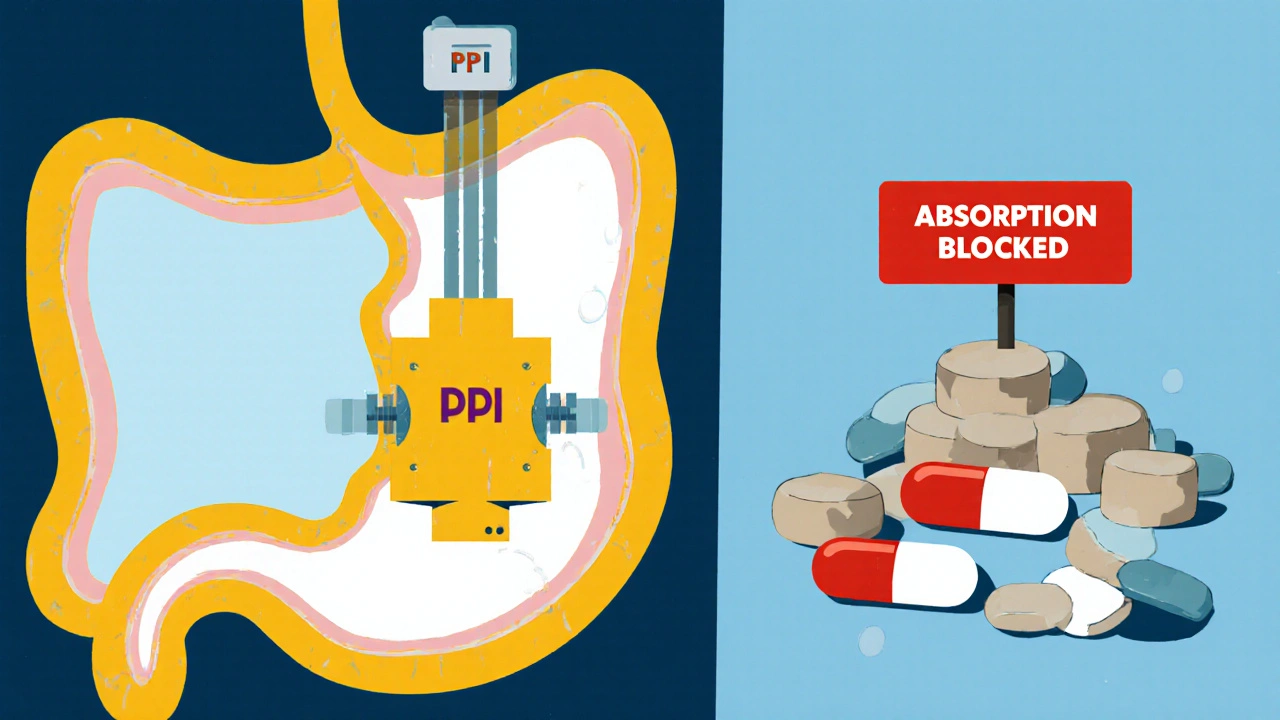H2 Blockers: What They Are, How They Work, and What You Need to Know
When your stomach makes too much acid, it can cause heartburn, ulcers, or inflammation of the stomach lining. That’s where H2 blockers, a class of medications that reduce stomach acid production by blocking histamine receptors in the stomach lining. Also known as histamine H2-receptor antagonists, they’re not as strong as proton pump inhibitors, but they work fast and are often used for short-term relief or when PPIs aren’t right for you. These drugs don’t stop acid completely—they just turn down the volume. Think of them like a dimmer switch instead of an off button.
H2 blockers are commonly used for acid reflux, a condition where stomach acid flows back into the esophagus, causing burning and discomfort, peptic ulcers, sores in the stomach or small intestine often caused by bacteria or long-term NSAID use, and gastritis, inflammation of the stomach lining that can lead to pain, nausea, and bloating. You’ll find them in both prescription and over-the-counter forms, with common names like ranitidine (though many are now off the market), famotidine, and nizatidine. They’re usually taken before meals or at bedtime to prevent acid spikes, not just after symptoms show up.
They’re not magic bullets. If you’re still having symptoms after a few weeks, it might mean something else is going on—like a bacterial infection, a hiatal hernia, or even a more serious condition. That’s why many of the articles in this collection focus on what to do when H2 blockers aren’t enough, how they interact with other meds like antibiotics or blood thinners, and when to switch to something stronger. You’ll also find comparisons with other acid-reducing treatments, real stories about side effects, and tips on managing long-term use without risking nutrient deficiencies or rebound acid production.
What you’ll find here isn’t just a list of drugs. It’s a practical guide to understanding when H2 blockers help, when they don’t, and how to use them safely alongside other treatments. Whether you’re dealing with daily heartburn, recovering from an ulcer, or just trying to figure out why your stomach won’t settle, these posts give you the facts without the fluff.

Acid-Reducing Medications: How They Interfere with Other Drugs
- Nov, 17 2025
- Daniel Remedios
- 12 Comments
Acid-reducing medications like PPIs and H2 blockers can severely reduce the absorption of critical drugs including HIV, cancer, and antifungal treatments. Learn which medications are affected, why it happens, and how to protect your treatment.
